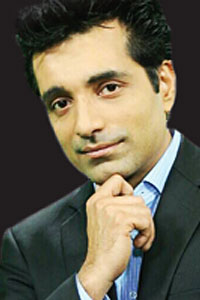As Prime Minister Prayut Chan-o-cha heads to the United Nations to give his first speech at the world body next week with the emphasis on sustainable development, the question on many people's minds will not be the subject he is going to speak about but instead what is happening in Thailand.
Thailand, a country that has had a great degree of freedom over the decades, has increasingly become a state where freedom of speech and expression are suppressed.

Gen Prayut, who for months had been loosening his grip on the media, suddenly out of the blue emerged to issue warnings and also called in one senior journalist for "attitude adjustment".
The previous calls for attitude adjustments were taken as something that a military government would do once it seizes power. But 15 months after assuming power another call for attitude adjustments is totally unwarranted.
One can assume many things from such a move: One being that the regime is feeling uncomfortable that the key driver of happiness among Thai citizens, the economy, seems to be heading south.
The latest cabinet reshuffle was purely aimed at reviving the economy, and many populist and fiscal budget restraining measures are being announced on a weekly basis.
When the regime is unable to get things moving on the economic front and when criticism is being levelled at the prime minister's performance, the result is an outburst of anger and warnings to those who speak out.
In no context is any intimidation of anyone, be it politician or any group, acceptable. But far worse is the fact that the media has been subject to this kind of bullying by the big brothers in uniform.
The summoning by the National Council for Peace and Order of The Nation's senior journalist Pravit Rojanaphruk for attitude adjustment only hurt Thailand's image in the eyes of the international community.
Many Thais might like to think we do not need outside opinions, but the hard fact is that we are very much dependent on the events and things happening around the world and in neighbouring countries.
The continuation of "attitude adjustments" has made Thailand slip further in the rankings for media freedom, something that most foreign investors do take into consideration when they make big investment decisions.
Thailand had been until recently the beacon of media freedom in the region but of late that crown seems to be slipping away to the likes of Philippines and once oppressive states such as Myanmar which has made strides in its efforts to allow freedom of expression.
In truth, the Asean region has been marred by various kinds of media oppression and Thailand until recently stood tall for press freedom.
Malaysia recently banned the publication of The Edge for its role in the revelation of the US$700 million (25 billion baht) graft scandal of Prime Minister Najib Razak. One does not need to talk about Vietnam or Singapore which have total control over what goes out to the public through their domestic media outlets.
Media in Cambodia, Myanmar and the Philippines have been leading the way during these past years and while we should be proud of such strides in those countries, it is sad to see countries that were at the forefront of this revolution starting to take steps backward.
Shooting the messenger is never the right way, especially when the military believes there is an underground movement against it. More important, the media is doing its job of offering checks and balances to a regime that has absolute power to do anything, especially with Section 44.
To counter negative views from the international community, the government should stop intimidating the opposition or members of the media for doing their jobs. Citing the need for the country to move forward to intimidate the media is no excuse. Globally any country that moves forward either economically or democratically allows expression of opinions.
The PM wants to increase foreign confidence in Thailand to boost investment and generate much-needed economic growth. That will be hard to achieve if the media is not allowed to do its job.
Umesh Pandey is editor of Asia Focus, Bangkok Post.
